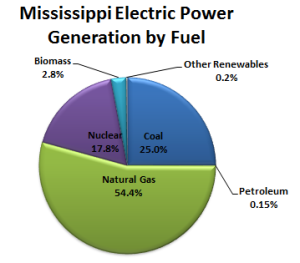The New York Times recently published an article about New England’s over-reliance on natural gas for electric power generation and, consequently, the precipitous price spike after a surge in demand.
What does this event in New England teach us? It teaches us diversity is critical to both reliability and stability of supply and cost in electric power generation. This microcosm shows the fallacy in allowing short term market conditions to over-influence decisions best made in long term perspective. This New England event also shows us the critical importance of infrastructure and delivery in energy. Along with adequate production and fuel supply, robust infrastructure and regular upgrades are the key components to what the public expects – electricity and energy available on the spot at a fair price.
The shale gas revolution has dynamically changed the economic picture in the U.S., especially in manufacturing. If not for the explosion in energy production over the past 5 years, who knows where our the U.S. economy would be? But all of these gains do not mean we should make ourselves over-reliant on natural gas. A diverse energy portfolio is the right answer.
Well over half of Mississippi’s electricity is generated using natural gas. Coal and nuclear account for the remainder of electricity generated in Mississippi, so while Mississippi does have some balance, the state as a whole is already heavily leveraged on natural gas (see graph below.)
“It is certainly true that a region like New England that relies on a single fuel source like natural gas for the bulk of its power does leave itself open for more disruptions than a region with a more diverse fuel mix,” said Jay Apt, executive director of the Electricity Industry Center at Carnegie Mellon University in Pittsburgh. “It’s not a knock against natural gas; it’s a knock against a single fuel source.”
With Mississippi Power’s Kemper plant one of the latest targets of the anti-build-anything-in-America coalition, it is important for us, ratepayers, in Mississippi to take heed of Mr. Apt’s words. These opponents saying we should be adding natural gas generation are missing the fundamental point about the importance of a diverse fuel portfolio in electric power generation. It cannot be stressed enough that diversity in fuel options is critical to stability and reliability coupled with the infrastructure capacity to meet demand. We must understand that electric power generation investments have very long lifespans of 40 years or more, so making decisions on today’s fuel costs make no sense. That’s why diversity will always be the best policy.
As discussed in the Times’ article, when New England experienced an early cold snap over Thanksgiving, there was an overreliance on gas- an overreliance that could not be met because of shortage of pipeline capacity. The demand was outpacing the delivery capacity of gas infrastructure. Thankfully, Indian Point, a twin-unit nuclear plant on the Hudson River, was able to contribute 1,400 megawatts.
New England’s near crisis is an excellent case study for not only Mississippi, but the nation. When an area relies heavily on one energy source (one that is delivered only as needed and requires an abundant infrastructure of pipelines) that area is susceptible to a volatile price market and shortage of energy.




Leave a comment